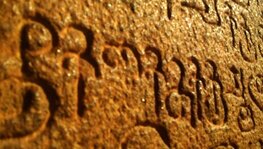Email: home@ayushline.com

Holistic health, holistic life

Holistic health, holistic life

Siddha medicine is an ancient system of traditional holistic medicine that originated in the history of South India over 2,000 years ago. The very roots of Siddha medicine can be traced back to the history of Indus Valley Civilization, where evidence of traditional medicine practices has been found. Siddha is based on the principle that every individual is unique and has a different constitution or prakriti. It is based on the concept of balance and harmony between the body, mind, and spirit, and is closely linked to the ancient Indian philosophy of Ayurveda.
Over time, the knowledge of Siddha medicine was passed down through generations of ‘Siddhars or or ‘enlightened beings‘. Those were the practitioners who recorded their observations and experiences in ancient Tamil texts such as the Thirumandiram and the Siddhar Vaithiyam.
In the 3rd century BCE, the great Tamil poet and philosopher Thiruvalluvar wrote the Thirukkural, which includes verses on medicine and healthcare. Siddha medicine was further developed and systematized by the Siddhar Agathiyar, who is considered the father of Tamil medicine.
The ancient Siddha texts describe a wide range of remedies and treatments for various ailments, including herbal medicines, yoga, meditation, and massage. Siddha medicine also emphasizes the importance of a healthy diet and lifestyle, with particular emphasis on the use of medicinal plants and herbs.
During the medieval period, Siddha medicine was influenced by Ayurveda and Unani medicine, two other traditional systems of medicine that were practiced in India. The Siddha system was also influenced by Chinese medicine, which had a strong presence in Southeast Asia.
In the 19th century, the British colonizers in India introduced Western medicine, which had a significant impact on traditional systems of medicine. However, Siddha medicine continued to be practiced by rural communities and Siddhars, who passed down their knowledge to future generations.
In the 20th century, the Indian government recognized the value of traditional systems of medicine and established research institutions to study and promote them. Today, Siddha medicine is recognized as one of the official systems of medicine in India and is practiced by millions of people, particularly in South India. It is also gaining popularity in other countries, particularly in the West, where people are looking for alternative and complementary forms of medicine.
In conclusion, Siddha medicine has a rich history that spans over 2,000 years. It is a testament to the ingenuity and wisdom of ancient Siddhars who observed and recorded their experiences in ancient Tamil texts. Despite the challenges posed by modern medicine, Siddha medicine continues to be a valued system of healthcare in India and beyond.
You must be logged in to post a comment.
🙏
Siddha medicine is really helpful. everybody should go for siddha..